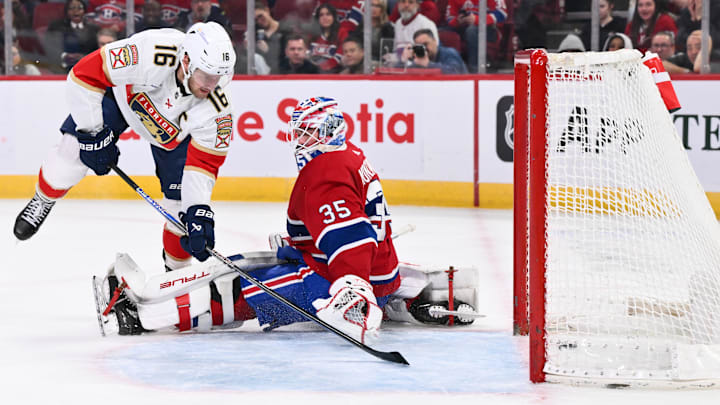The NHL is in a strange, transitionary period where it's trying to move away from the physical, old-school hockey of the past and into a more free-flowing, talent-driven league. The Toronto Maple Leafs have been the brunt of the joke, as Kyle Dubas created a top-heavy team that excels in the regular season but fails in the playoffs when the hockey gets tougher. The Florida Panthers proved on Monday night that physicality will still win out when they lifted the Stanley Cup.
The Maple Leafs advanced to the second round last season, but they regressed this season to another first-round loss. However, the Edmonton Oilers aren't that much different than the Maple Leafs. Sure, Connor McDavid and Leon Draisaitl are a better duo than Auston Matthews and Mitch Marner, and Zach Hyman and Evan Bouchard had better seasons than William Nylander and Morgan Reilly. Regardless, the roster construction isn't that much different.
Top-Heavy Talented Teams
They both have an unproven goalie, a shaky defensive core, and some question marks with their forward depth. The Oilers were a better team top-to-bottom, which is why they made it to Game 7 of the Stanley Cup Final, but the two teams' skeletons remain the same.
It would have been a huge win for the people who prefer a more free-flowing game than physicality and toughness. The NHL is a copy-cat league, and you would have seen a lot more teams loading up with top-end talent and abandoning depth and goaltending.
The Panthers' performance in Game 7 was picture-perfect. Connor McDavid had one of his most quiet games of the postseason and went scoreless in back-to-back games for the first time since November.
The Panthers proved that defense and team play still trumps elite offensive talent. We saw it with McDavid in Games 6 and 7, and in a way, we saw it during the last two series with Leon Draisaitl. The Stars were the same sort of team as the Panthers, but they ran out of steam towards the end of the Oilers' series. However, they managed to keep Draisaitl in check.
What Does It Mean for the Canadiens?
It's hard to look at one series and completely change an off-season strategy. Don't get me wrong, the Canadiens need more scoring in their forward group, but the Panthers show that if you can't defend and check, you aren't going to be successful in the playoffs. The Panthers moved away from that during Games 4, 5, and 6, and they saw how quickly they could let a team back into the series.
The Canadiens have an embarrassment of riches with their defensive depth. They could afford to trade one to acquire a forward but may want to re-evaluate their targeted forwards. Aleksander Barkov, Matthew Tkachuk, Sam Reinhart, Sam Bennett, and Carter Verhaeghe all have something in common: They are supremely talented players but don't get pushed around and aren't afraid to dole out some punishment.
Most of the Canadiens' targets this offseason are players I can imagine getting pushed around in the playoffs. The player that may be the best come playoff time is the newest rumor, and that's Patrik Laine. Laine goes through some scoring slumps and isn't the most physical player. However, you could imagine him fighting through tough defense to score a goal on his one opportunity like Carter Verhaeghe and Sam Reinhart did in Game 7 after an unproductive series.
There may come a day when the NHL is all about top-end talent and there are less than 50 hits combined per game. For one more year, we can go into the offseason happy that the game we grew up with is still the same as it used to be: A rough, physical, win-at-all-cost battle, which is the toughest sport in the world.
